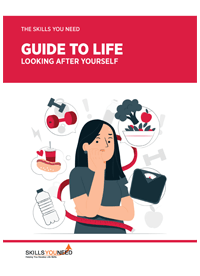How to Help a Friend Through
a Mental Health Crisis
See also: Types of Depression
It can be hard to know where to start when trying to help a friend who is suffering from a mental health crisis. So many people live with mental health issues, but many never even bring it to the surface or ask for assistance.
Those who do, are most times, at a point where they will take help from anyone. As a friend, you might not know what to say or do to help your friend. Maybe you even feel uncomfortable trying to help.
But you must remember, your friend came to you for help and, because they were brave enough to ask for help, you should be brave enough to do your best to help them.

One in four Americans suffers from a mental illness, and even those who don’t have a chronic, diagnosable condition will at some point experience grief, loss, anxiety, sorrow or some other emotional crisis. Trauma, loss, substance abuse and untreated mental illness can all cause mental health crises, and while it’s one thing to know what to do when someone sustains an injury or has a heart attack, it’s quite another to be supportive when a friend, family member or colleague experiences severe mood swings or develops other symptoms of mental illness.
Luckily, you’re not powerless to help a friend, loved one or acquaintance who is going through a mental health crisis. While you may not be able to provide help on the same level as a mental health professional, you can provide mental health first aid to help stabilize the person and keep him or her safe until professional help can arrive. First, learn how to identify the signs of a mental health crisis, and then learn what to do and say to provide your friend with the support they need, and keep him or her safe until professionals can intervene, if necessary.
Identify a Mental Health Crisis
How will you know if a friend is having a mental health crisis? It can be hard to see the signs of a crisis from the outside. Look for any of the following:
- Erratic behavior
- A decline in personal hygiene
- Changes in sleep habits, including problems with insomnia as well as sleeping more than normal
- A decline in professional or academic performance
- Withdrawal from relationships, friendships or social activities
- Sudden weight gain or loss
- Mood swings or pronounced changes in mood, including elation, irritability, anger, sadness, or anxiety
A mental health crisis can come on suddenly, triggered by a catastrophic life event, a natural disaster, the loss of a loved one or some other traumatic event. However, they can also come on gradually, and the signs can be obvious or extremely subtle.
If you notice something off about your friend’s behavior, think about how they have been behaving over the past few months; look for a pattern of behavior that could signify a problem.
Don’t be afraid to approach your friend if you think they could be struggling; don’t wait for them to come to you first. Many people won’t reach out for help because they’re ashamed to admit they’re having problems or they don’t want to be a burden. If you want to approach your friend, start the conversation by saying something like, “You don’t seem like yourself these days. I’m concerned. Let’s talk.”
Listen Without Judging
Whether your friend comes to you with their problem or you approach your friend, it’s important to listen non-judgmentally to what they have to say.
The things your friend says may not make sense to you. Keep calm, and don’t pass judgment or blame your friend for the way they have been feeling - even if you privately think that the crisis might be at least partly their fault. Your friend needs to know that you can be trusted to give them support, especially if they have come to you with their problems.
Listen more than you talk. While you should reassure your friend, you should be careful how you do so. If, for example, a depressed friend confides that they feel like a burden, your first instinct might be to say, “Of course you’re not!” While this sounds encouraging on the surface, it could have the unintentional effect of making your friend feel invalidated, like their feelings aren’t to be taken seriously. Instead, say something like, “It must be awful to feel that way,” to acknowledge your friend’s feelings and make them feel heard.
There are courses online if you’re looking for quick tips on how to be helpful and supportive for your friend; however, if you’re looking to turn helping others into a life-long commitment, then you can even look into mental health counseling degree programs on an academic or graduate level. But if you feel you cannot reach your friend, encourage them to seek professional help.
Further Reading from Skills You Need
The Skills You Need Guide to Life: Looking After Yourself
Based on some of our most popular content, this eBook will help you to live a happier, healthier and more productive life.
Learn how to look after your body and mind: the fundamental first steps to personal development.
This eBook, now in its third edition, with new and revised content, is designed to make life both easier and better.
Get Your Friend Emergency Help If Necessary

In many cases, a friend going through a crisis may only need some emotional support, reassurance and encouragement. But sometimes, the crisis may reach the level of an emergency. This happens if your friend starts talking about suicide, self-harm or harming someone else, or if you think your friend is incapable of acting in their own best interests. In an emergency, your friend needs immediate medical intervention.
Your friend may not tell you if they are feeling suicidal or thinking of harming someone else. You may need to listen carefully to your friend to identify erratic behavior that could be harmful or signal an emergency, such as racing thoughts, a decreased need for sleep or irrational behavior.
Don’t be afraid to ask your friend outright if they have been thinking of suicide or have a plan to commit suicide. If your friend or loved one has a weapon or is about to engage in self-harm or harm to others, call the emergency services or take your friend to the emergency room. There, doctors can keep them safe and help them get treatment.
Almost everyone experiences a mental health crisis at some point in their lives. Learn how to help your friends weather these emotional storms and provide the support they need to get on the road to recovery.
About the Author
Tiffany is a leader in marketing authority, she assists Seek Visibility and our clients in contributing resourceful content throughout the web. Tiffany prides herself in her ability to create and provide high quality content that audiences find valuable. She also enjoys connecting with other bloggers and collaborating for exclusive content in various niches.
With many years of experience, Tiffany has found herself more passionate than ever to continue developing content and relationship across multiple platforms and audiences.
Continue to:
Stress Management
Friendliness


